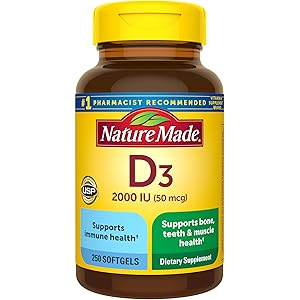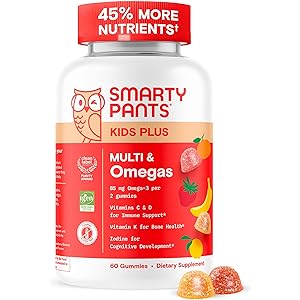Nature Made Vitamin D3 2000 IU (50 mcg), Vitamin D Supplement for Bone, Teeth, Muscle and Immune Health Support, 250 Softgels, 250 Day Supply
$11.99 (as of October 25, 2025 06:13 GMT +00:00 - More infoProduct prices and availability are accurate as of the date/time indicated and are subject to change. Any price and availability information displayed on [relevant Amazon Site(s), as applicable] at the time of purchase will apply to the purchase of this product.)What is Dietary Cholesterol?
Dietary cholesterol refers to the cholesterol found in food. It is a waxy, fat-like substance that is present in every cell of the body and is essential for the production of hormones, vitamin D, and bile acids that help digest fat. Understanding what dietary cholesterol is and how it affects health is crucial for making informed dietary choices.
Sources of Dietary Cholesterol
Common sources of dietary cholesterol include animal-based foods such as eggs, meat, poultry, and dairy products. For instance, egg yolks are particularly high in cholesterol, while lean meats and fish contain moderate amounts. It’s important to note that plant-based foods do not contain cholesterol, making them a heart-healthy choice for those looking to manage their cholesterol intake.
The Role of Cholesterol in the Body
Cholesterol plays several vital roles in the body. It is necessary for the formation of cell membranes, which protect cells and help them function properly. Additionally, cholesterol is involved in the synthesis of steroid hormones, including cortisol and sex hormones, as well as vitamin D. Despite its importance, the body can produce all the cholesterol it needs, which raises questions about the necessity of dietary cholesterol.
Dietary Cholesterol and Heart Health
For many years, dietary cholesterol has been linked to heart disease, leading to recommendations to limit its intake. However, recent research suggests that for most people, dietary cholesterol has a minimal impact on blood cholesterol levels. Instead, saturated and trans fats in the diet are more significant contributors to increased blood cholesterol and heart disease risk. Understanding this distinction is essential for making healthier dietary choices.
How the Body Regulates Cholesterol Levels
The body regulates cholesterol levels through a complex system involving the liver, which produces cholesterol and removes it from the bloodstream. When dietary cholesterol intake increases, the liver typically compensates by producing less cholesterol. This regulatory mechanism helps maintain balance, but individual responses can vary, making some people more sensitive to dietary cholesterol than others.
Recommended Dietary Guidelines
Current dietary guidelines suggest that individuals should focus on overall dietary patterns rather than solely on cholesterol intake. Emphasizing a diet rich in fruits, vegetables, whole grains, and healthy fats while limiting saturated and trans fats is recommended. For most people, consuming moderate amounts of dietary cholesterol, such as from eggs, can be part of a healthy diet without significantly affecting heart health.
Cholesterol Testing and Monitoring
Regular cholesterol testing is important for assessing heart health. A lipid panel measures total cholesterol, LDL (low-density lipoprotein), HDL (high-density lipoprotein), and triglycerides. Understanding these levels can help individuals make informed dietary and lifestyle choices. If dietary cholesterol is a concern, consulting with a healthcare provider can provide personalized recommendations based on individual health needs.
Myths and Misconceptions about Dietary Cholesterol
There are many myths surrounding dietary cholesterol, including the belief that all cholesterol is bad. In reality, cholesterol is essential for various bodily functions, and not all cholesterol is harmful. HDL cholesterol is often referred to as “good” cholesterol because it helps remove excess cholesterol from the bloodstream, while LDL cholesterol is known as “bad” cholesterol due to its association with heart disease.
Conclusion on Dietary Cholesterol
Understanding what dietary cholesterol is and its role in health is crucial for making informed dietary choices. While it is important to be mindful of cholesterol intake, focusing on overall dietary quality and lifestyle factors is key to maintaining heart health. Emphasizing whole foods and healthy fats can lead to better health outcomes without the need for strict limitations on dietary cholesterol.


